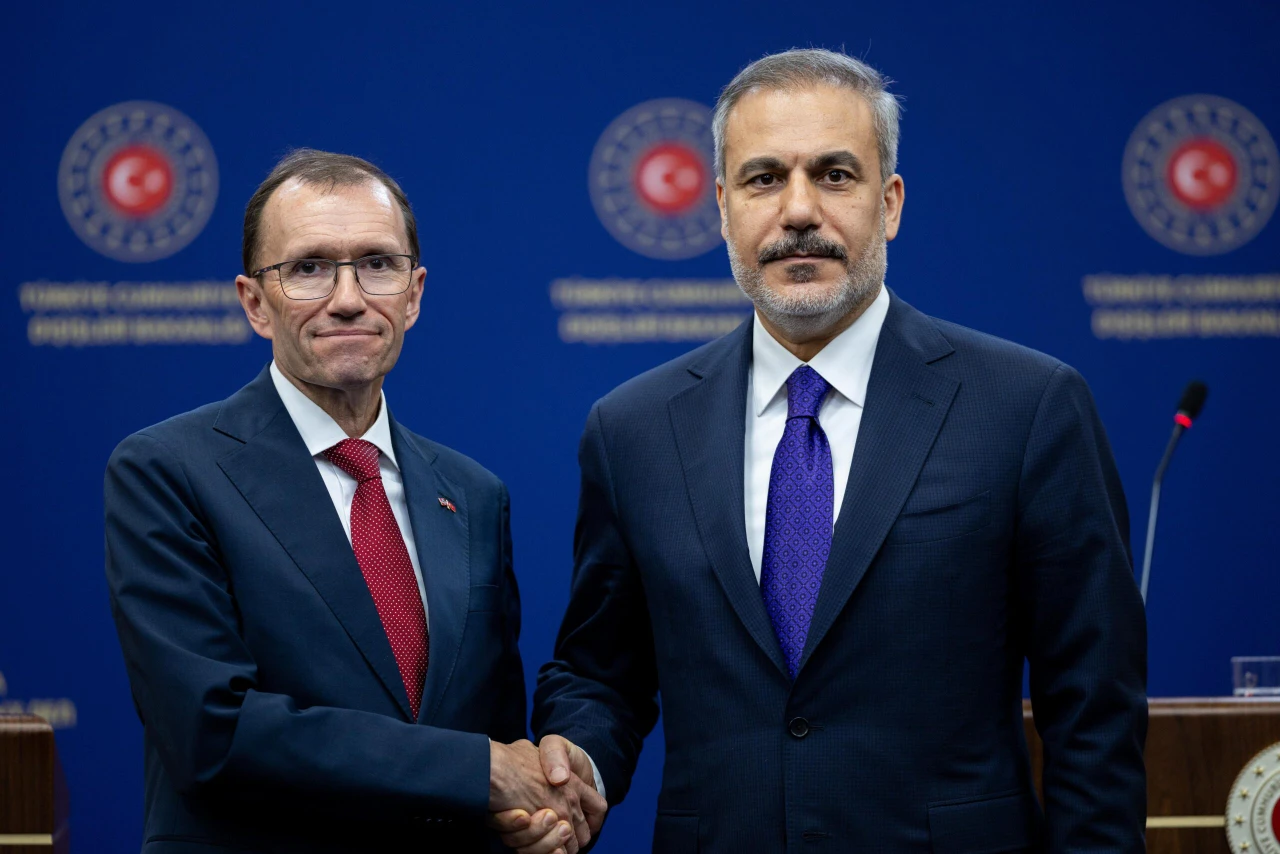FM Fidan calls for end to US support for PKK in Syria
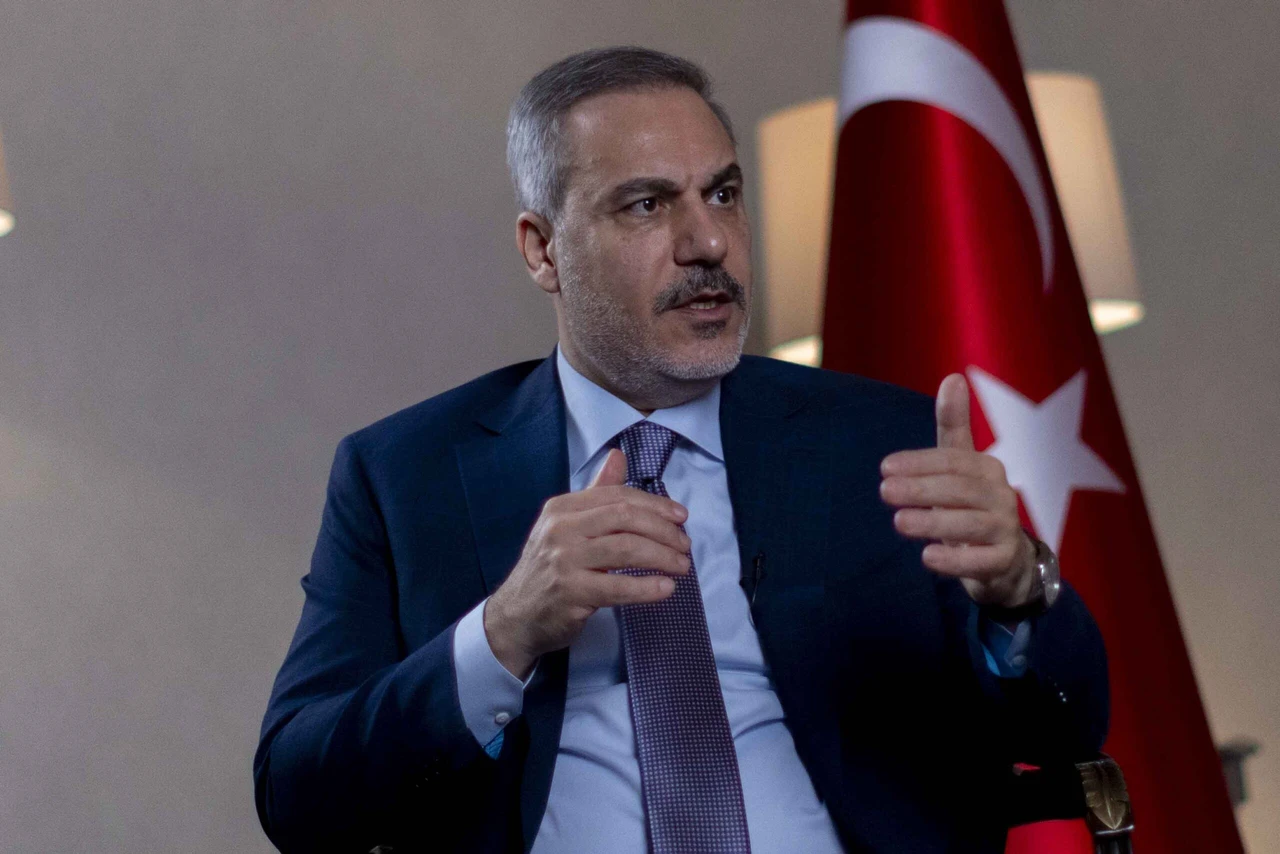 Foreign Minister Hakan Fidan attends interview of Al Jazeera in Ankara, Türkiye on February 26, 2025 (AA Photo)
Foreign Minister Hakan Fidan attends interview of Al Jazeera in Ankara, Türkiye on February 26, 2025 (AA Photo)
Turkish Foreign Minister Hakan Fidan urged the United States to reassess its support for the PKK and its affiliated terrorist groups in Syria, emphasizing that Washington must “move away from its obligation to back the PKK.”
In an interview with Al Jazeera, Fidan outlined Ankara’s position on the Syrian conflict and its concerns over the PKK’s influence in the region.
He pointed out that PKK-linked terrorist groups control a significant portion of Syrian territory, including Arab-majority cities, as well as key oil and gas resources.
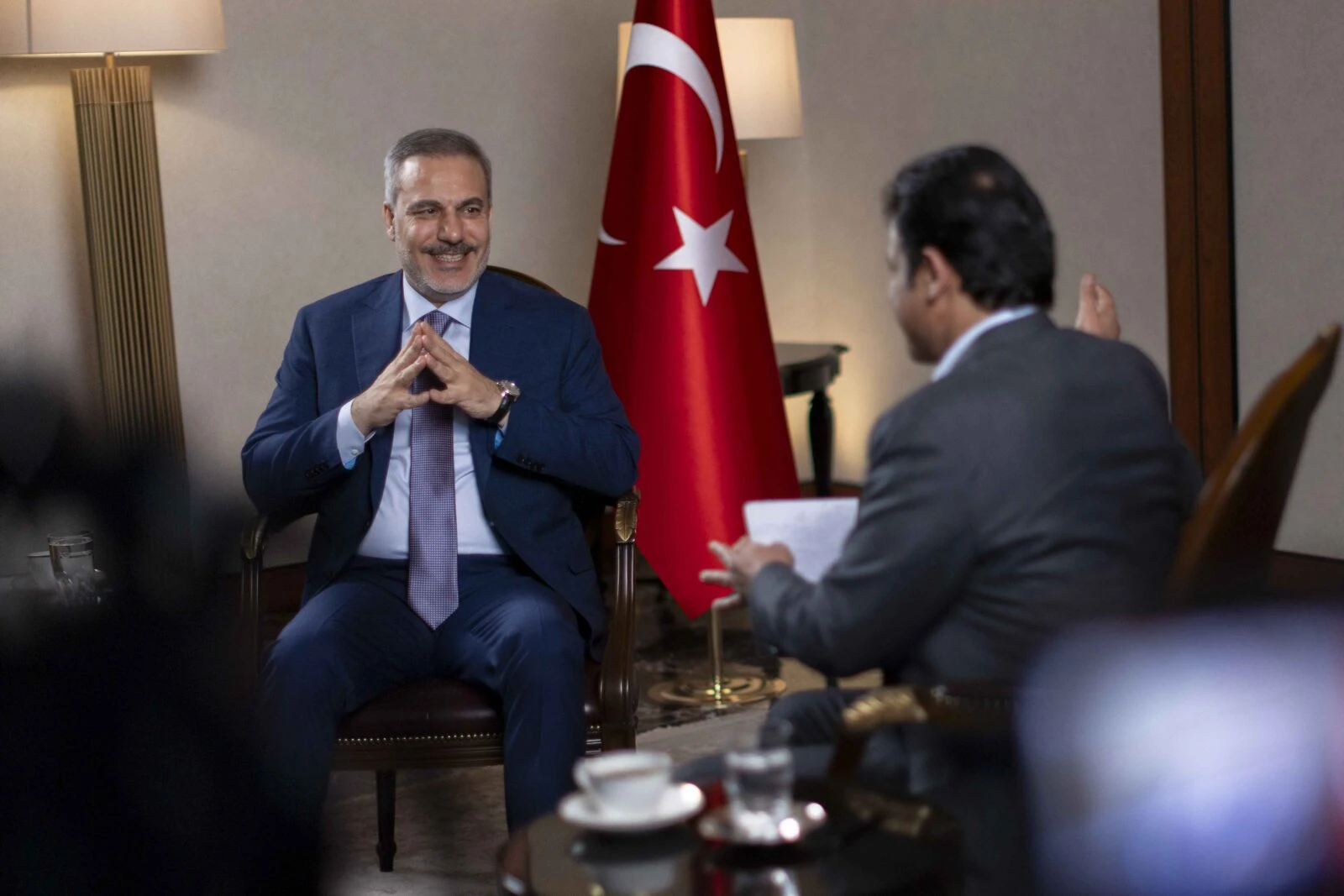
Türkiye seeks shift in US policy on Syria
Fidan called on the U.S. to revise its approach to the PKK/YPG in Syria, particularly in the context of counterterrorism operations against Daesh terrorist group.
“The U.S. needs to exit its obligation of supporting the PKK, which poses a direct threat to Türkiye,” he stated.
He further stressed that the PKK’s dominance over Syrian land and natural resources funds its operations beyond Syria, impacting Iraq, Iran, and Türkiye.
“They seize oil and gas, sell it to the Syrian people, and use the revenue to fund PKK activities in Iraq, Iran, and Türkiye,” he said.
According to Fidan, around 2,000 PKK members from Türkiye, Iraq, and Iran hold key positions within the SDF, the PKK’s Syrian offshoot.
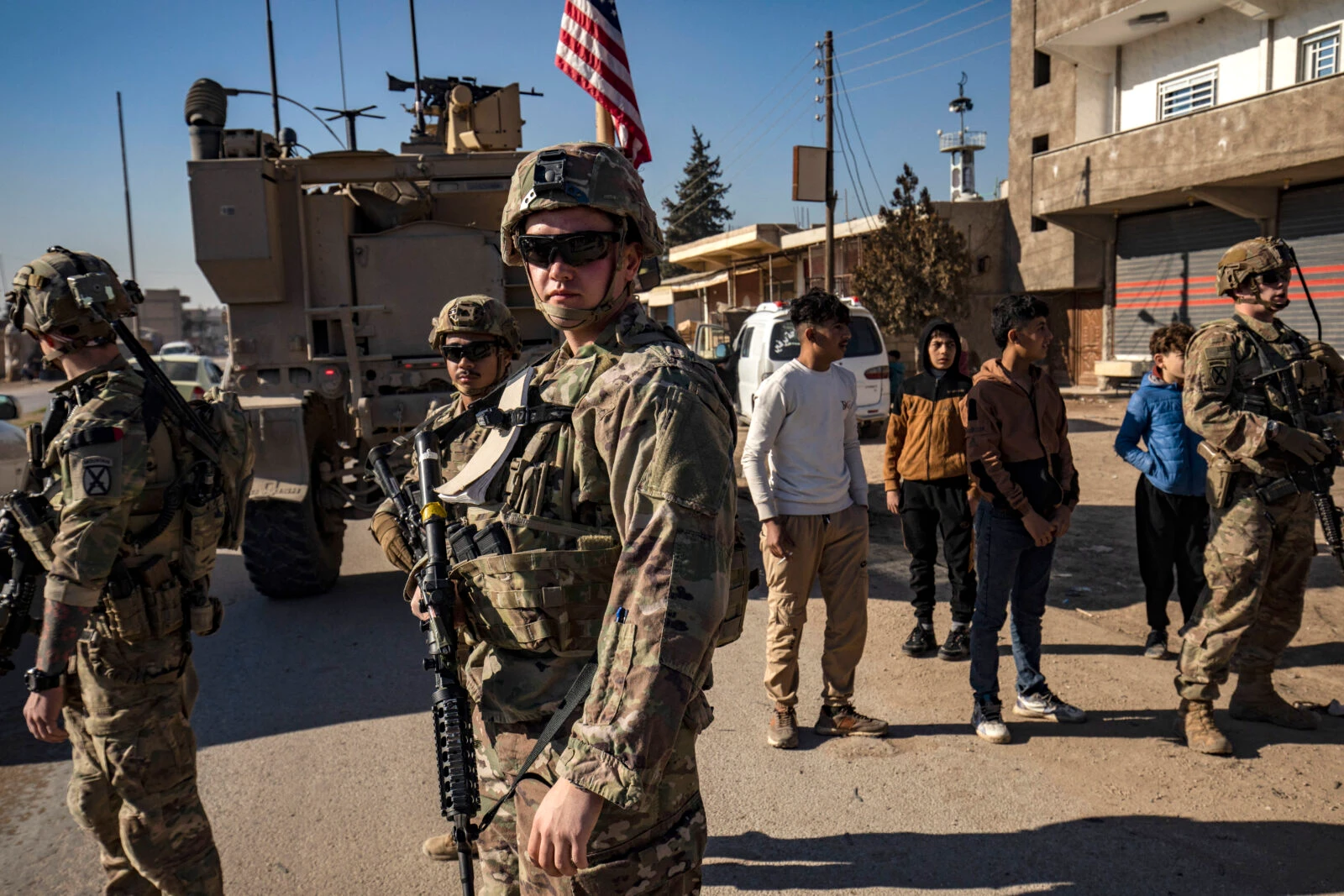
Regional security concerns and role of PKK/YPG
Fidan criticized Western countries, particularly the U.S. and European nations, for continuing to support the PKK/YPG, arguing that their justification lies in maintaining control over Daesh detainees.
“The PKK/YPG occupies one-third of Syrian territory under the pretext of keeping Daesh prisoners,” he said.
He underscored the broader security implications, noting that this arrangement threatens the territorial integrity of Syria, Iraq, and Türkiye.
“The threats to Syria’s territorial integrity, as well as those against Iraq and Türkiye, must be eliminated,” he said, expressing hope for a peaceful resolution.
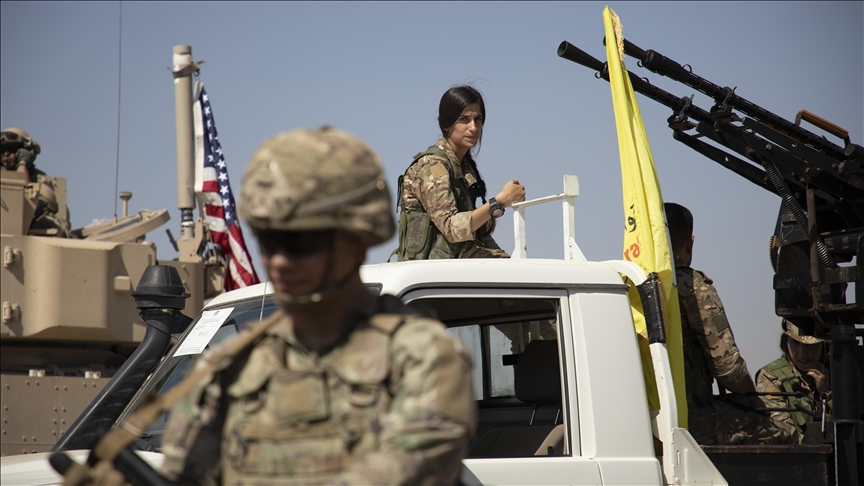
Iraqi Kurdish Regional Government’s stance on PKK
Fidan highlighted Türkiye’s close relationship with the Kurdish Regional Government (KRG) in Iraq and their shared stance against PKK activities.
“Türkiye and our Kurdish brothers in the KRG have a strong alliance in combating PKK aggression. The PKK has committed crimes against them as well,” he stated, adding that the KRG has also pushed for the disarmament and dissolution of the PKK.
Ankara’s continued support for Syrian opposition
On Türkiye’s stance regarding the Syrian opposition, Fidan reiterated Ankara’s long-standing support.
“From the beginning, Türkiye has backed the opposition. This support has become even more crucial given that millions of Syrians have fled to Türkiye due to the war,” he explained.
He emphasized that Türkiye is committed to stabilizing opposition-held territories to prevent further refugee movements.
“More than 5 million people live in opposition-controlled areas. If the regime advances, they will flee to Türkiye. This is why maintaining opposition strength and the ceasefire is essential,” Fidan noted.
Türkiye, he said, has provided safe haven to millions of Syrians and takes pride in hosting them. “They are hardworking, honest people. We hope that in a stable and secure Syria, they can return home safely,” he added.
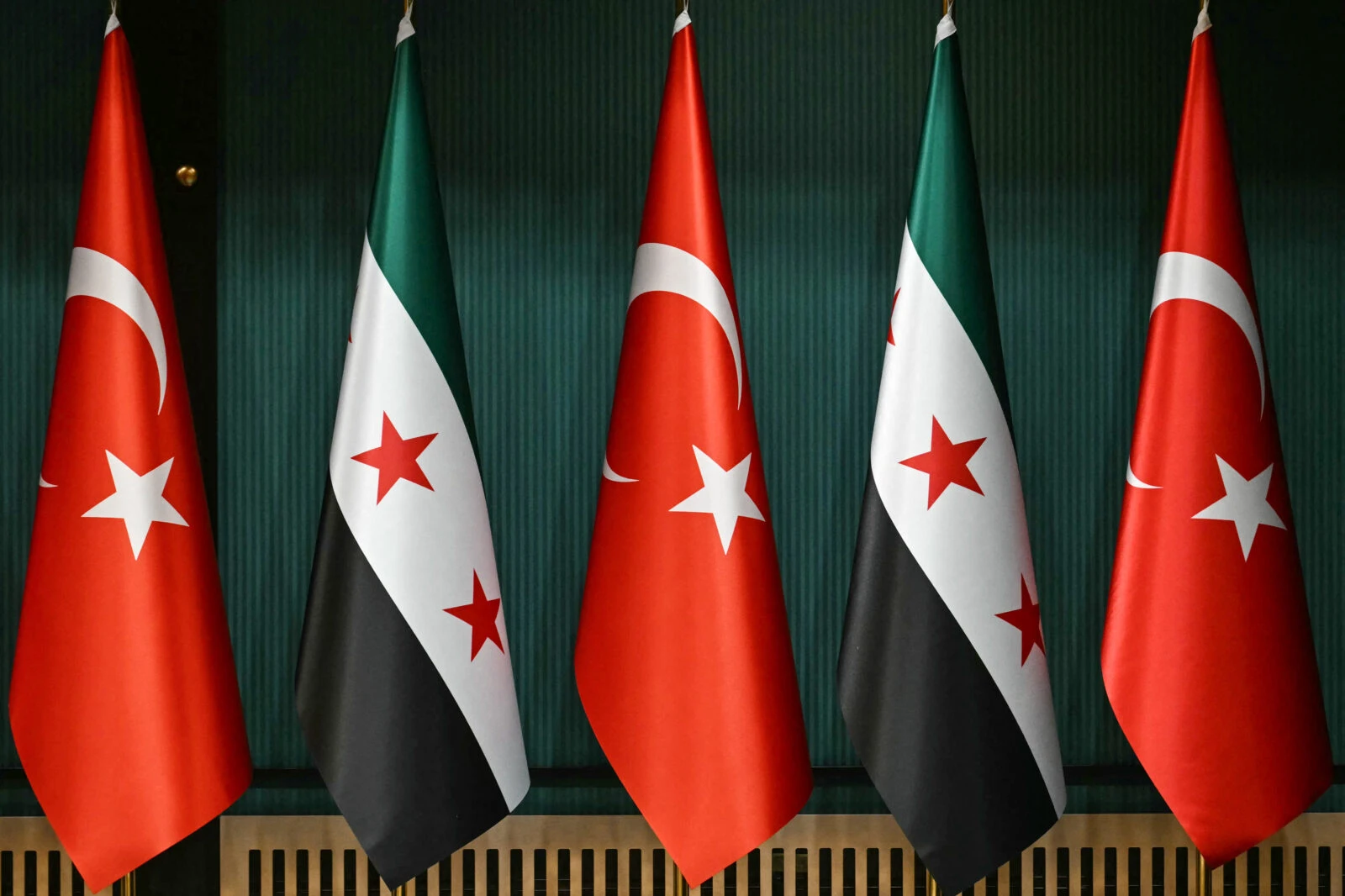
Türkiye’s engagement with new Syrian Leadership
Fidan discussed Türkiye’s engagement with Syria’s new leadership under President Ahmed al-Sharaa, expressing optimism about a transformation in governance.
He noted that Sharaa had taken responsibility for providing essential services to millions in Idlib and acknowledged past mistakes.
“A government cannot be based solely on ideology. Our advice to the new leadership is that all citizens should be treated equally under the constitution,” he said, warning against the persistence of extremist rhetoric.
“If radical discourse advocating international extremism continues, opposition to such groups will remain strong,” he added.
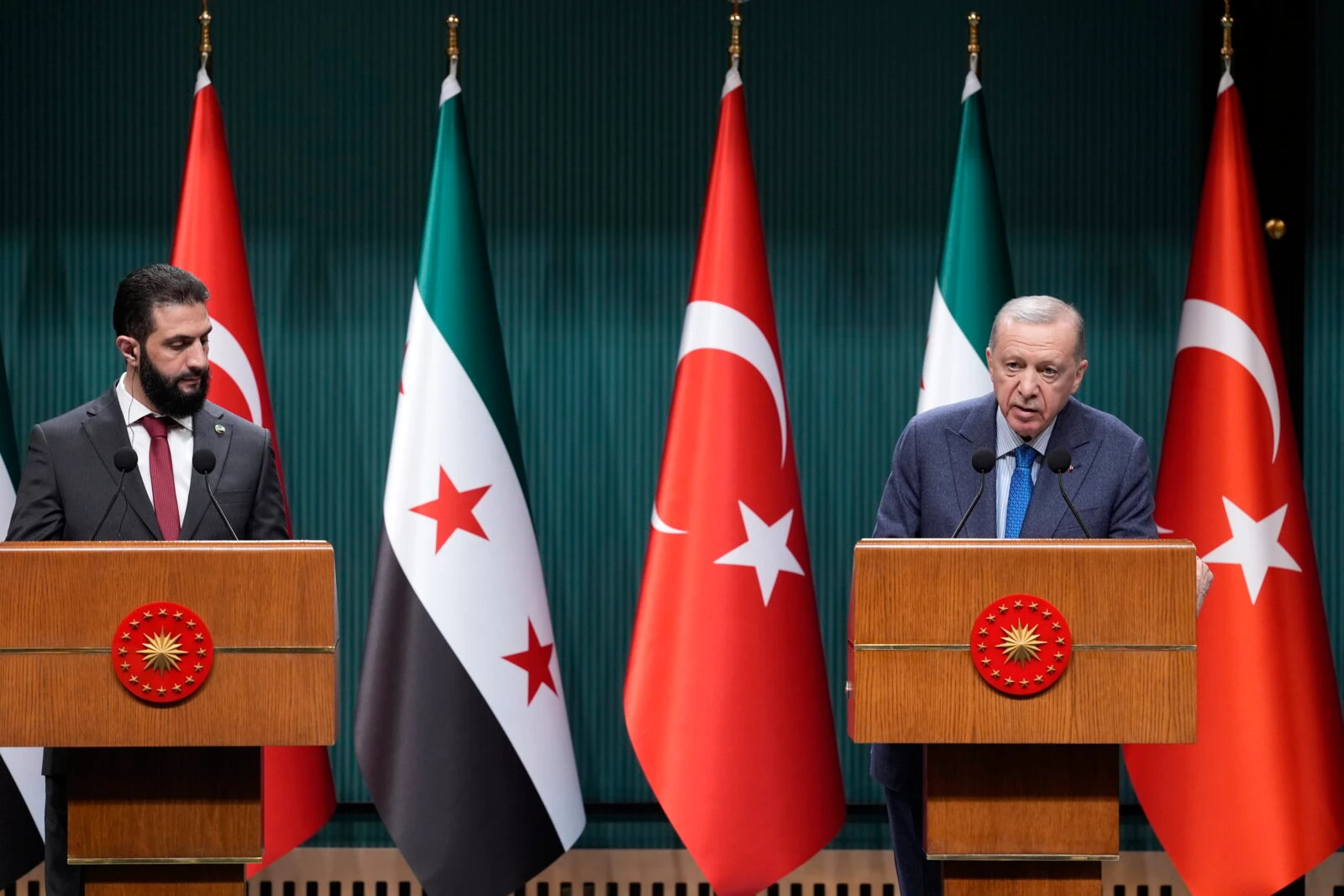
Iran’s regional strategy and security risks
Fidan also addressed Iran’s approach to regional conflicts, warning that Tehran’s reliance on proxy militias poses long-term risks.
“Iran’s policy of managing regional conflicts through militias has provided it with gains, but at a significant cost,” he said.
He suggested that Iran reconsider this approach, as it has led to increased financial and political burdens. “Iran has had to sacrifice much more to sustain its influence in Iraq and Syria,” he added.
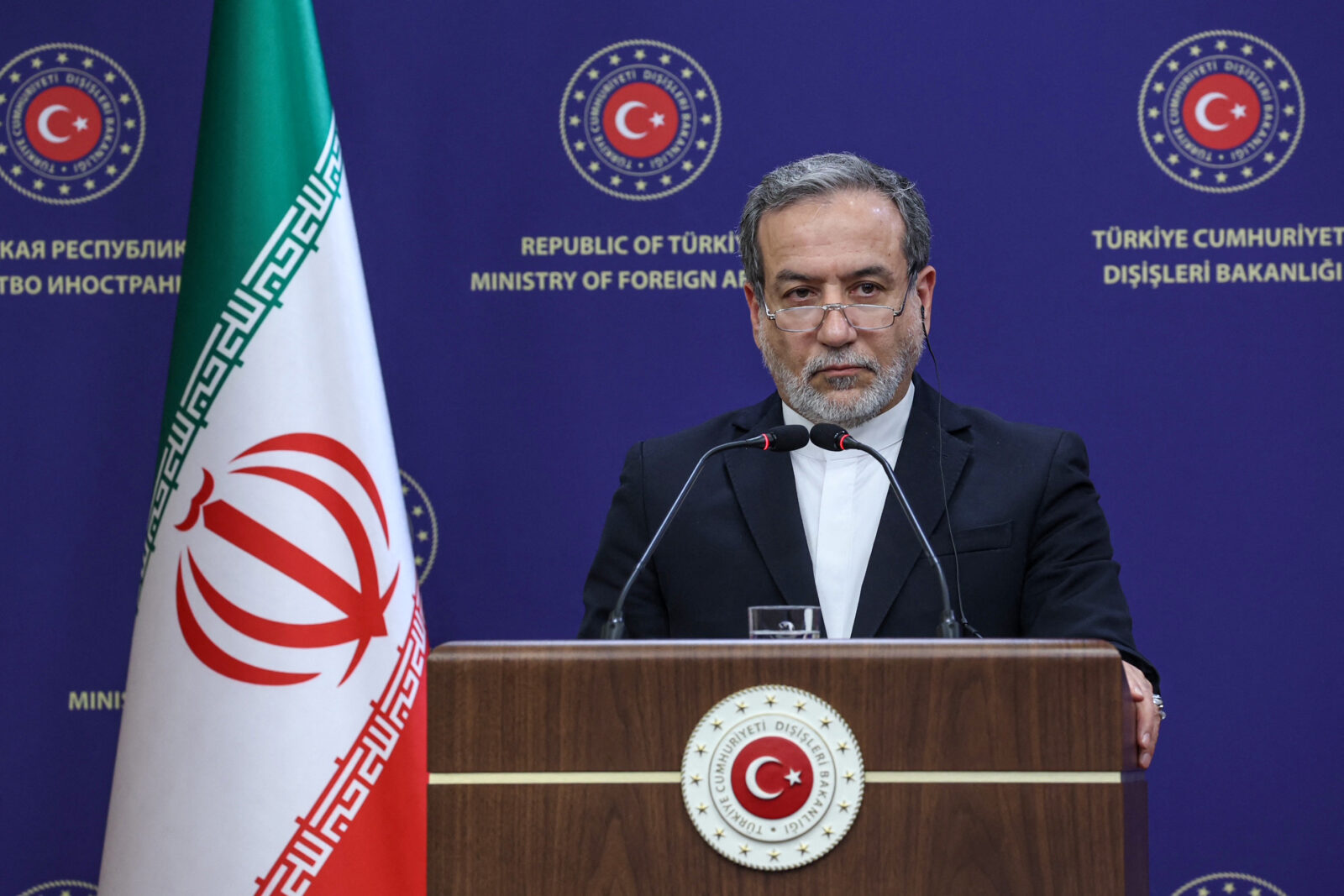
Opposition to regional dominance strategies
Fidan called for a new regional paradigm that moves away from power struggles. “Neither Arabs, Turks, Kurds, nor Iranians should seek to dominate one another. Cooperation, not dominance, should define regional relations,” he said.
He cautioned Iran against supporting armed factions such as the PKK/YPG, arguing that backing one group could prompt retaliation from others.
“If you support a group in another country to create instability, another state may do the same to you. Nothing remains hidden anymore,” he warned.
Importance of regional economic development
Fidan stressed that the region’s focus should shift to economic progress rather than power struggles.
He praised Saudi Arabia’s economic transformation under Crown Prince Mohammed bin Salman and noted similar efforts in Gulf nations and Egypt. “We see Arab and Islamic leaders striving to change their nations’ fate by prioritizing development and modernization,” he said.
He also highlighted significant investments in Iraq under Prime Minister Mohammed Shia al-Sudani’s leadership, emphasizing the need for regional collaboration in economic growth and security.
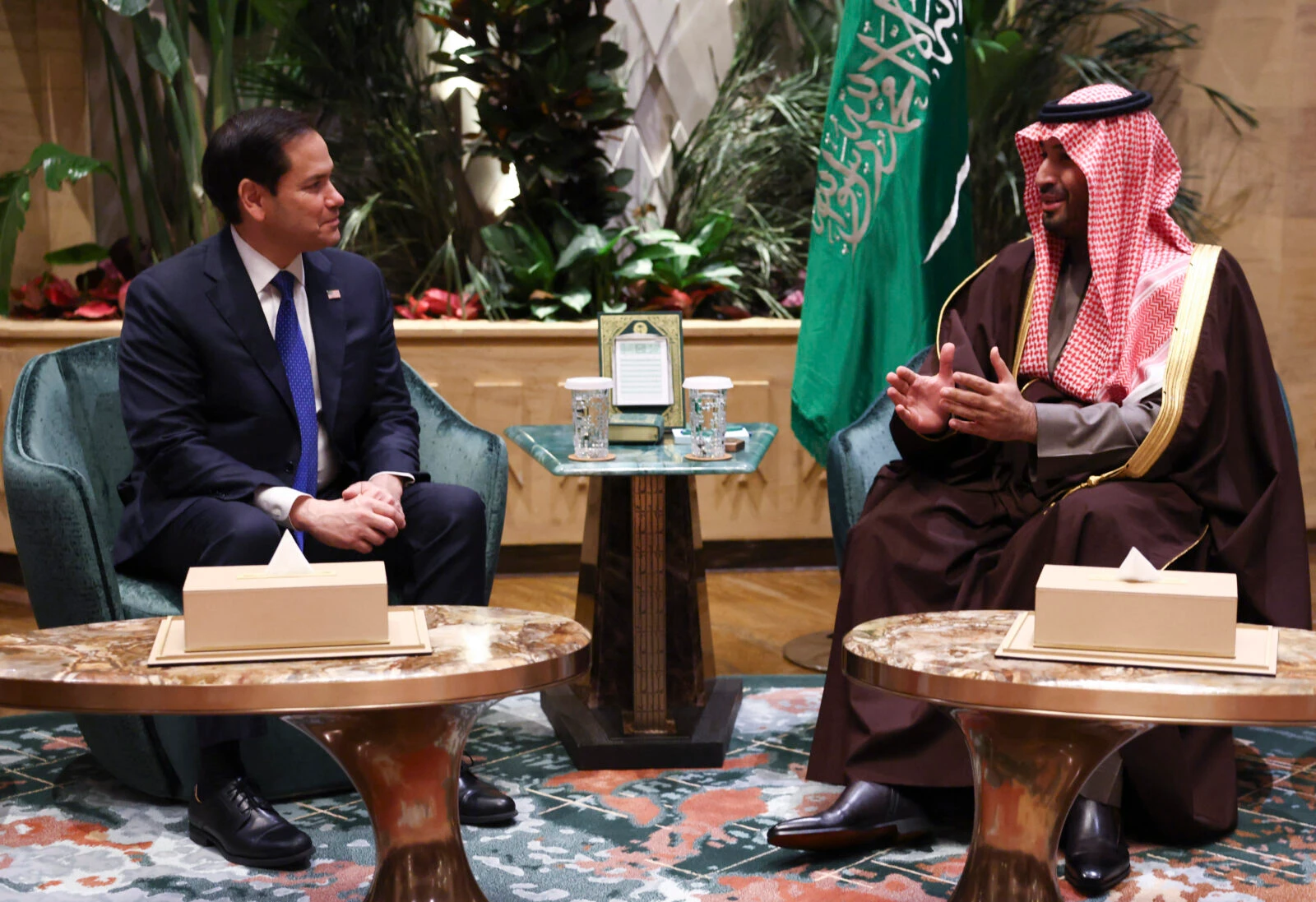
Türkiye’s position on Israel and Palestine
On Israel and Palestine, Fidan reaffirmed Türkiye’s unwavering support for Palestinian rights. He denounced Israeli policies, particularly the treatment of Palestinians and the status of Jerusalem. “It is unacceptable to see Jerusalem’s status being continuously eroded,” he said.
He added that Türkiye has no issue with Jewish people but opposes Israel’s expansionist policies. “We have sheltered Jewish refugees throughout history, but we stand against the Israeli government’s expansionism,” he stated.
Fidan also pointed out that Israel’s Prime Minister Benjamin Netanyahu is leading the country toward a strategic failure despite tactical successes.
“Netanyahu is achieving tactical wins but leading Israel toward a major strategic loss and international condemnation,” he argued.
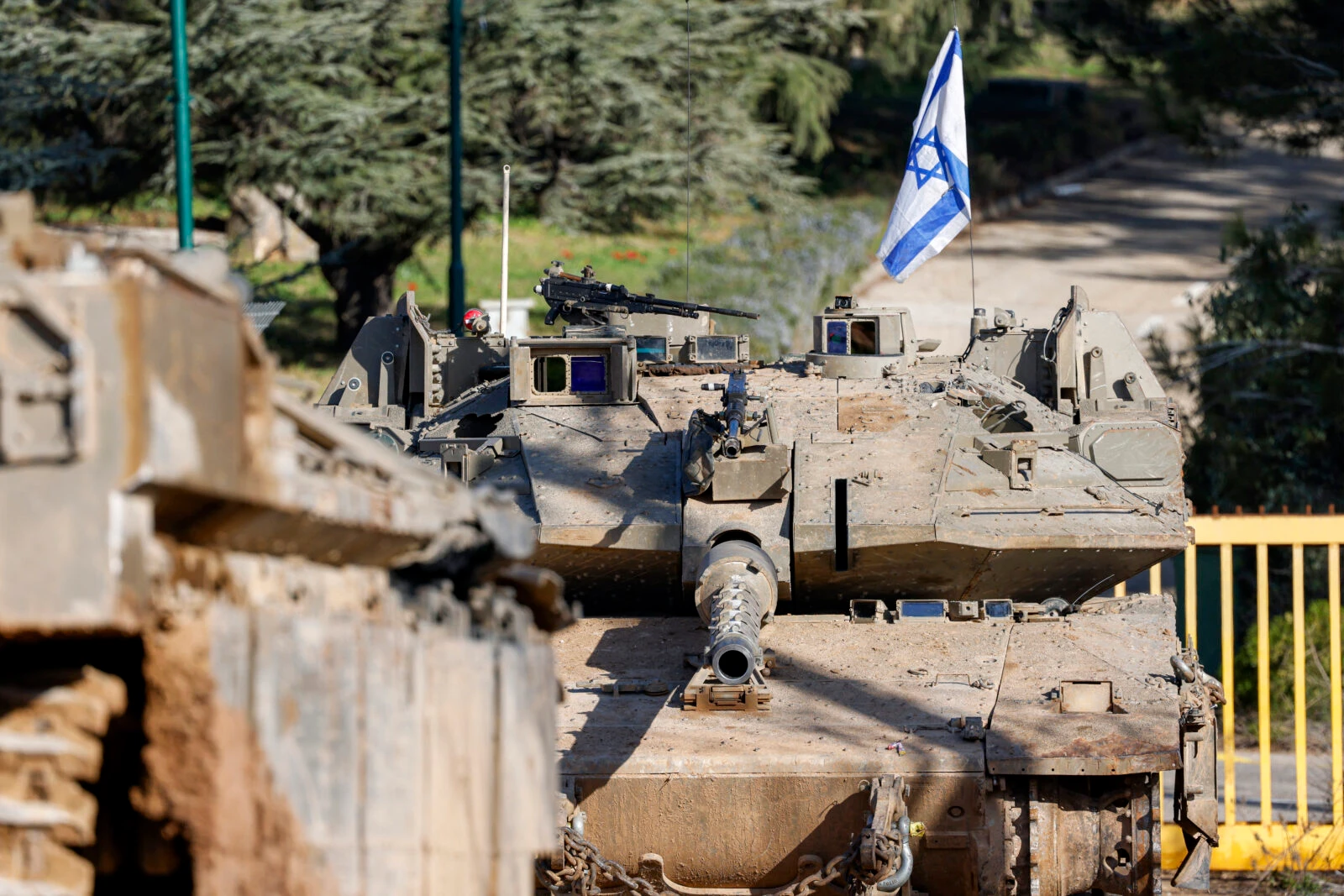
Saudi Arabia’s approach to normalization with Israel
Fidan commended Saudi Arabia’s stance on normalization with Israel, noting its insistence on linking the process to a two-state solution.
“Saudi Arabia has taken a principled and honorable stance by tying normalization to the recognition of Palestinian statehood,” he said, calling for greater support for Riyadh’s position.
Trump’s potential role in resolving Palestine issue
Regarding U.S. policy on Palestine, Fidan suggested that U.S. President Donald Trump could play a significant role in pushing Israel toward a two-state solution.
“Trump could be the only one capable of pressuring Netanyahu into accepting a two-state solution, just as he successfully ended the war in Ukraine,” he said.
Fidan argued that Israel’s continued expansionism creates long-term instability and forces the U.S. to allocate resources indefinitely. “The U.S. cannot sustain indefinite support for Israel while it continues to make enemies in the region,” he warned.
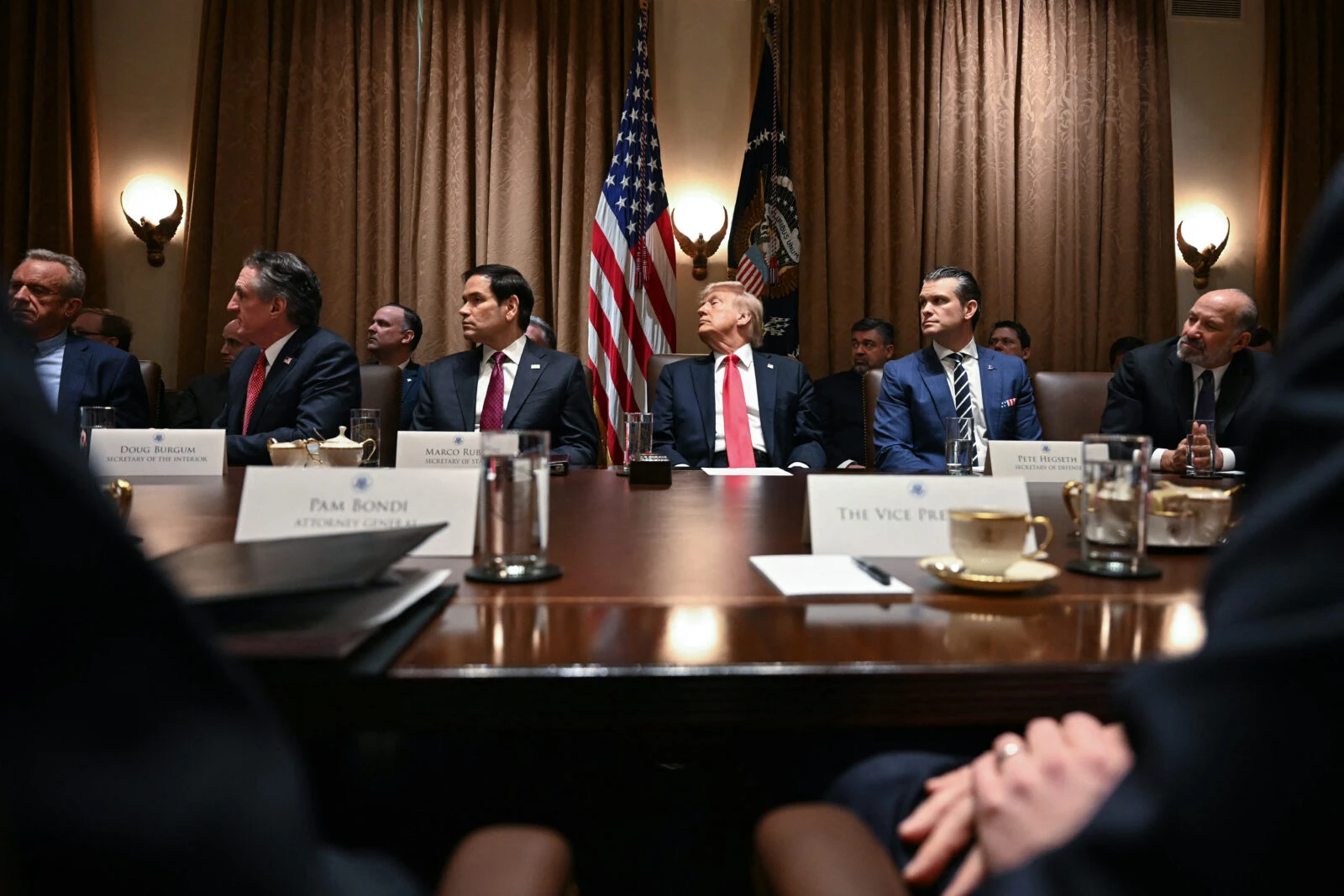
Türkiye’s expectations from US
Concluding the interview, Fidan reiterated Türkiye’s primary expectation from the U.S.: to end its support for the PKK. “This is a national security issue for Türkiye. What may be a tactical concern for the U.S. is an existential threat to us,” he stated.
He added that resolving this issue would pave the way for stronger U.S.-Türkiye cooperation in the region, particularly in counterterrorism and economic partnerships.
